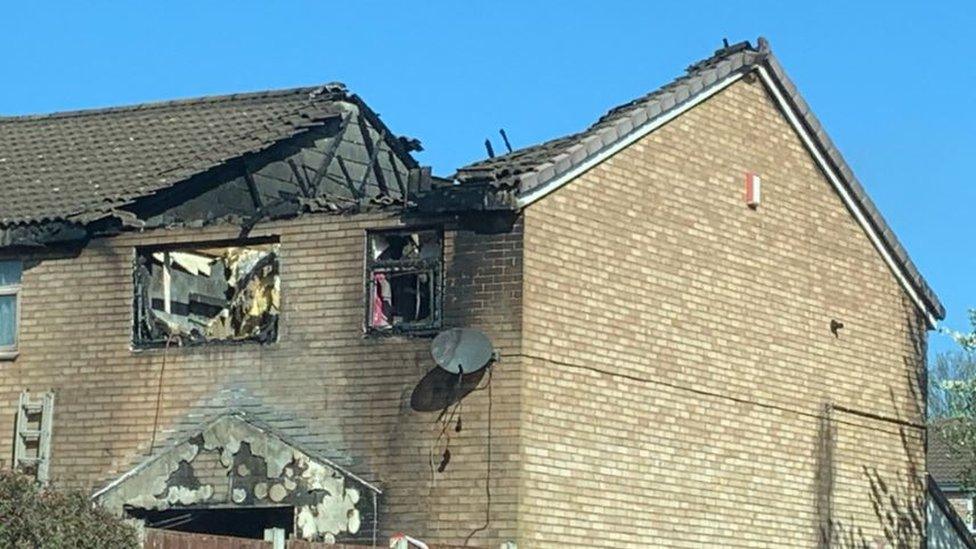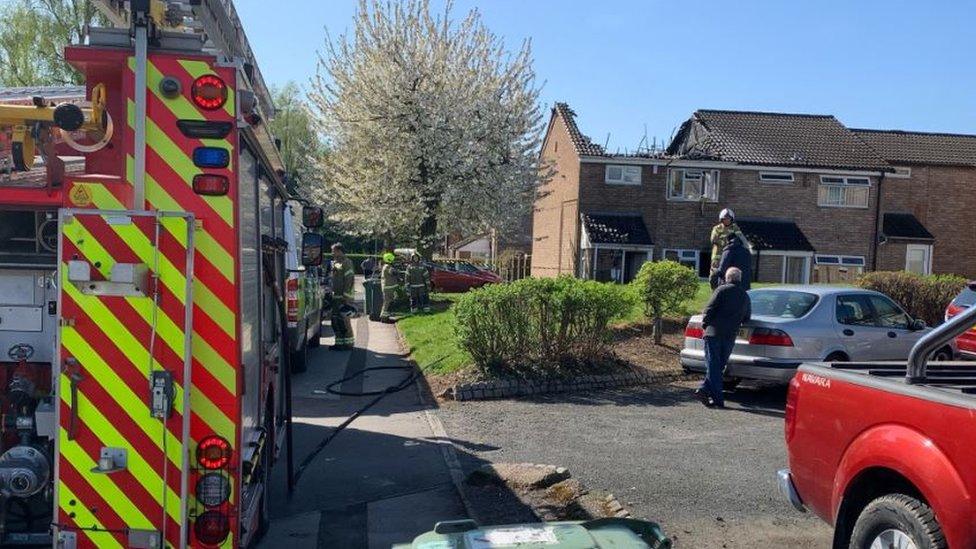Walsall woman killed by 'Roman candle' oxygen cylinder fire
- Published

Lynn Hadley's family said they saw sparks suddenly appear from the cylinder in their lounge
A woman with suspected Covid-19 died when an oxygen cylinder being used to treat her ignited "like a Roman candle" setting fire to her home.
Lynn Hadley's husband, David, along with paramedics, tried to pull her from her chair, but was stopped by smoke and flames, an inquest jury heard.
Investigators said the fire in Walsall, West Midlands, in April was "extremely rare" and a "tragic accident".
Jurors at Black Country Coroner's Court returned a verdict of accidental death.
The inquest heard Mrs Hadley's daughter Kelly had called 999 on 13 April after the 67-year-old became unwell with suspected coronavirus at her home in Shelfield.
Paramedics checked her over and decided to administer oxygen.

The woman was being treated by paramedics when the explosion happened
Summing up the evidence on Thursday, coroner Zafar Siddique said a paramedic described checking the cylinder, removed its seal and opened it, before seeing sparks and an ignition.
Mrs Hadley's daughter said she tried to get her mother out of the living room after "sparks like a Roman candle" came from the cylinder.
'Extremely rare'
She heard someone shout "get out" and rescued her child from upstairs before escaping through the front door, Mr Siddique said.
Mrs Hadley, a retired shop worker died from burn injuries, the coroner confirmed.
Fire investigation officer Jason Dean said the ignition could have been caused by either adiabatic compression - a rise in the temperature of a gas - or particle impact, adding "both are extremely rare".
Opening the patient valve first, as in this case, could increase the chance of it happening, he added.
Paramedic Emma Spence said it was "common practice" to open that valve first.
Representing the Medicines and Healthcare products regulator, Dr Neil McGuire said he was only aware of three similar cases since 2011.
Robert Cole, West Midlands Ambulance Service's investigating officer, said Miss Spence had not been trained in the manufacturer's instructions for the "correct sequence" of using a cylinder, but said the consequences were not widely known, if at all, by staff.
He apologised to the family and said measures had been introduced to stop such an incident happening again.

Follow BBC West Midlands on Facebook, external, Twitter, external and Instagram, external. Send your story ideas to: newsonline.westmidlands@bbc.co.uk, external